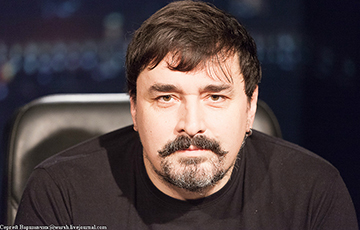"Hellish US Sanctions" Against Russian Federation: What Graham Proposes To Trump And When Congress Will Vote
2- 10.07.2025, 18:08
- 18,850

Graham's bill provides for a range of direct and indirect restrictions on Russia.
This week, the US Congress has been actively talking about Senator Lindsey Graham's bill, which provides for unprecedentedly tough sanctions against Russia.
RBC-Ukraine tells about the essence of this document and explains why it has become relevant again after a month-long pause.
This week, Senator Lindsey Graham announced that the Senate would consider his sanctions bill on July 9, but it never happened. But Senate Republican Majority Leader John Thune said the document is still being finalized.
-"We're working with the (Trump administration, - ed.), with the House of Representatives, to try to get it into a finished form," the politician said.
He said a vote is possible before the August congressional recess. If that doesn't happen, it won't be revisited until Sept. 9 at the earliest. But overall, the review process depends more on political calculations than on congressmen's schedules. Meanwhile, Senator Graham himself is in Rome for the Ukraine Recovery Conference, where he also attended a meeting of the "coalition of the resolute" - the first time U.S. officials have appeared at such an event.
Bill Highlights
Graham's bill (original title - Sanctioning Russia Act of 2025), numbered S.1241, was registered back in April of this year amid Donald Trump's hesitancy to impose sanctions against Russia. It is sometimes also referred to as the Graham-Blumenthal project - after the name of Democratic Senator Richard Blumenthal, who is also actively promoting this initiative.
The bill's authors have stated that its goal is to apply such serious leverage on Russia that the Kremlin would finally agree to stop its aggression against Ukraine and engage in real peace talks.
The Graham bill provides for a number of direct and indirect restrictions on Russia. These include asset freezes and transaction bans for senior Russian officials, military personnel, oligarchs and others who support the military.
The bill imposes sanctions on key banks such as the Central Bank of Russia, Sberbank and Gazprombank, while prohibiting U.S. institutions from conducting transactions with Russia and restricting Russian entities from listing securities on U.S. stock exchanges.
In addition, the bill prohibits exports of energy products from the United States to Russia and investments in Russia These tariffs would apply to all goods and services imported into the United States from these countries.
Why the bill has not yet been passed
Although the initiative was supported by as many as 85 senators out of 100, Lindsey Graham was in no hurry to lobby for its actual consideration in the Senate, waiting for informal approval of the bill by the U.S. President, although he regularly publicly reminded about his initiative. In parallel, Senators Graham and Blumenthal traveled to Ukraine and Europe to coordinate positions with U.S. partners.
A shift in this regard occurred in late June, when after another phone call with the Russian dictator, Trump began to express his displeasure with Putin's actions. On June 29, Graham said he had reached an agreement with the US president, although some points in the bill had to be softened.
Trump's room for maneuver
The new version of the bill includes a number of provisions giving the US president more room to maneuver regarding Russia. The White House insists that the document should preserve the president's exclusive authority in matters of foreign policy. The point is that the final decision on imposing or not imposing any sanctions will be made by Trump personally, and the bill does not oblige him to do so.
Therefore, Trump will have to come to an official conclusion that Russia either does not want to move towards a peace agreement, or violates the already reached peace agreements, or commits new aggression against Ukraine, or tries to overthrow the government in Kiev.
Among the possible relaxations of the bill that are being discussed is the introduction of a presidential waiver (waiver). Under it, Trump can once postpone the application of 500% duties for 180 days. A second deferral is also possible, but it requires congressional approval. The deferral does not apply to countries recognized as sponsors of terrorism.
In May, Reuters, citing anonymous European diplomats, reported that some countries, notably Germany and Hungary, had expressed concerns about secondary tariffs. In response to those concerns, senators, the sources said, agreed to include a provision in the bill that allows the U.S. president to exempt certain countries, goods or services from duties for 180 days on national security grounds.
Politico reported that exemptions for certain goods were added to the bill. They relate to humanitarian aid and U.S. intelligence-related activities. The changes, sources said, were aimed at reducing resistance from some Republicans and the Trump administration, which had favored more flexibility in implementing sanctions, the publication reported, citing Senate aides.











